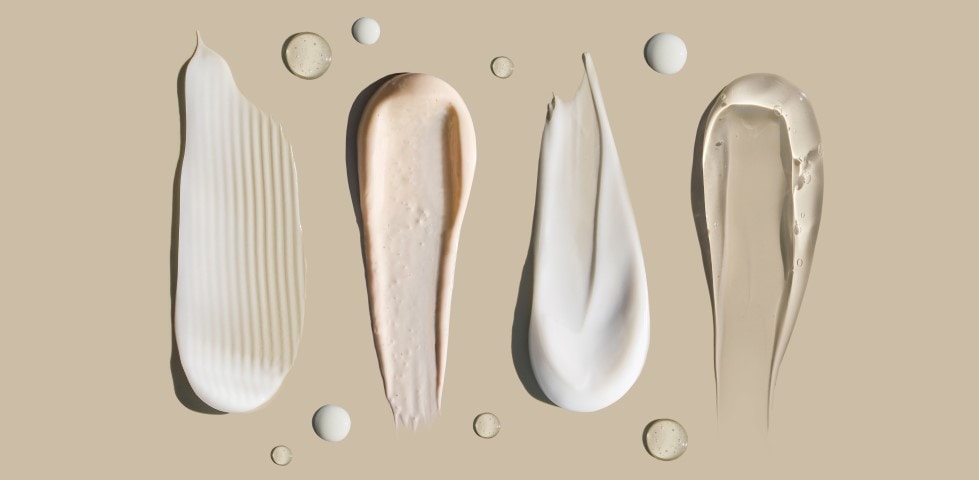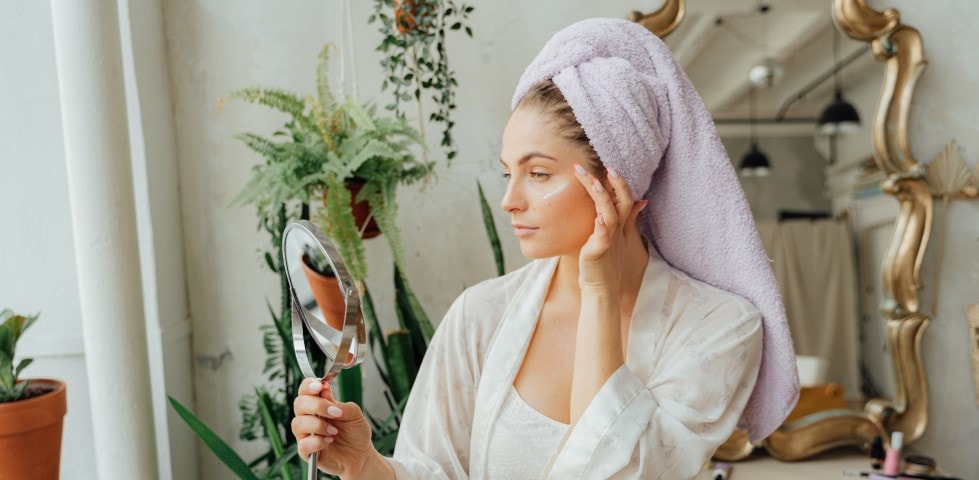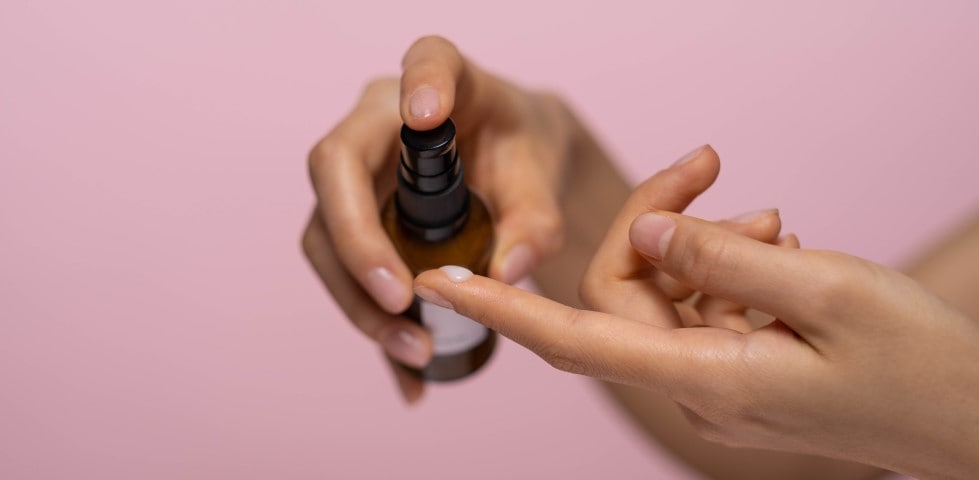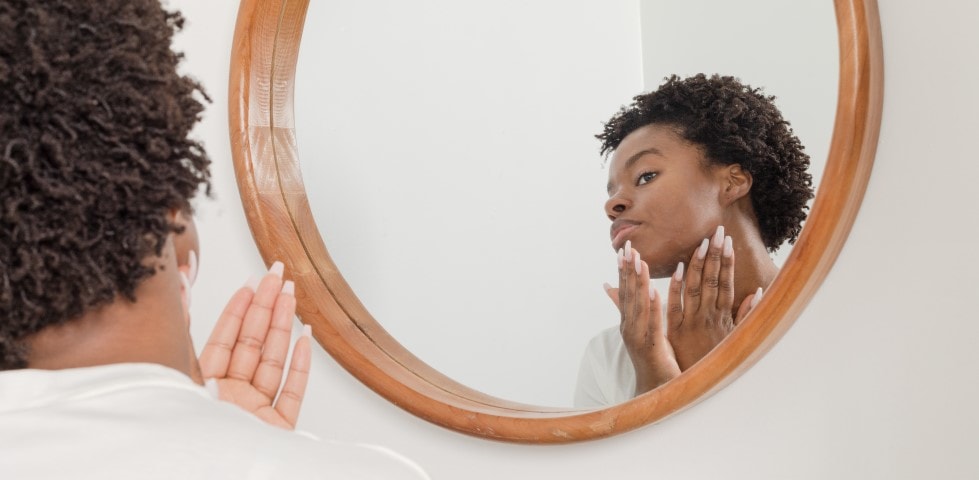
Parabens in cosmetics – harmful or not?
You’ve probably seen the word being used a fair bit: for some time now, parabens have been considered potentially harmful ingredients in skin creams, shampoos and other products. They are suspected of having a hormonal effect. But where do these warnings come from and is the fear of parabens really justified? We investigate and take you on a journey into the world of preservatives.
23 October 2024 • 3 min. reading time
Table of contents
What are parabens?
From a chemical point of view, parabens are a collective term for 4-hydroxybenzoic acid and all its derivatives. But that’s just a side note: what’s important for you to know is that parabens have a preservative effect in cosmetics. This is because their antimicrobial properties protect serums, creams, lotions and oils from bacteria and fungi. They therefore help you to use your cosmetics for longer. Parabens also have numerous advantages for manufacturers: they are easy to work with, inexpensive and effective.
Without the use of parabens and other preservatives, your products would quickly go bad once regularly exposed to the the air or your skin. They are therefore by no means a useless ingredient that can simply be left out. Their dosage is therefore regulated by cosmetics regulations. These regulations state which parabens may be used in which products. It also defines the applicable limit values, which are set in stone by law. Parabens are also considered to be well researched and to have low allergenic potential.
Certified natural cosmetics without parabens generally refrain from using conventional preservatives. In this case, manufacturers use natural substances such as alcohol or essential oils. However, their germ-inhibiting potential is lower, which is why these pure natural cosmetics have a shorter shelf life. In addition, intolerances can often occur here too, as essential oils in particular are considered irritants.
Why parabens are thought to be harmful
The opinion about parabens changed in 2004. At that time, British researchers found residues of parabens in breast tumours, apparently transmitted through the use of deodorants. Their conclusion: parabens can promote breast cancer. Even the German Cancer Society issued a warning. On closer inspection, however, the results of the study were questionable. Further investigations followed and brought the following to light.
- Firstly, the number of participants in the study was too small.
- Secondly, the scientific documentation had a lot of gaps. No one could prove whether the study participants had used deodorant, or how much.
- Thirdly, there was no cross-check as to whether residues of parabens could also be detected in healthy tissue.
These three factors were sufficient to question the plausibility of the study. The German Federal Institute for Risk Assessment also came to this conclusion and also referred to the generally low toxic potential of parabens.
Note
To date, no study has been able to prove an actual link between the development of breast cancer and the use of parabens in cosmetics.
Parabens and the hormonal effect on the body
From a chemical point of view, parabens are similar to the female sex hormone oestrogen. In addition, the preservatives can penetrate the skin barrier and thus enter the body. Animal tests support the theory of parabens having a hormonal effect The administration of butyl and propyl paraben reduced the testosterone level of male rats and thus their sperm count – they were effectively feminised. In female animals, the uterus was found to grow in size.
However, results from animal experiments are difficult to transfer to humans. This is because every organism functions differently and metabolises chemical substances in different ways. As such, we can again say that although there is a suspicion of parabens having a hormonal effect, this has not yet been sufficiently confirmed. The German Cancer Society has now also withdrawn its concerns.
Parabens are also found in nature. They are present in many vegetables and fruit, such as carrots, onions, blueberries and grapes. Even if these substances accumulate in the body, there are no long-term studies on the actual effects. And whether parabens ingested via food can be distinguished from cosmetic parabens has also not been sufficiently clarified. As such, don’t let their bad reputation cause you to lose too much sleep. Cosmetics without parabens also have disadvantages of their own.
Alternatives to parabens – how good are they really?
The label “paraben-free” has become a selling point for many people. But to prevent cosmetics from spoiling prematurely, alternative preservatives are needed. These often have the disadvantage that they are not yet particularly well researched and can also have undesirable side effects. An increased alcohol content or essential substances are often more harmful to the skin than any paraben could be. The consequence: redness, irritation, rashes, allergic reactions.
Another alternative to parabens is methylisothiazolinone (MIT), a tried-and-tested preservative for wall paints and cleaning agents. For a long time, it was also added to all cosmetics. It is now known that it can lead to severe contact allergies. Therefore, MIT may only be used in wash-off products such as shower gel or shampoo. It is prohibited in creams and lotions, as these are absorbed into the skin.
The use of parabens in cosmetics
Under the EU Cosmetics Regulation, different concentrations apply for the individual parabens:
- Methyl and ethyl parabens: up to 0.4% (in mixtures up to 0.8%)
- Propyl and butyl parabens: up to 0.19%
So you see: parabens develop their preservative properties even at very low concentrations, while other substances such as penthylene glycol can only have an antimicrobial effect at very high concentrations. The German Federal Institute for Risk Assessment has also looked into this and confirmed this in a statement: As long as the maximum limits are not exceeded, parabens do not pose a significant risk to health.
If you still have concerns and want to be on the safe side: it also always depends on the size of the skin area that comes into contact with parabens. Therefore, a face cream with parabens is considered less of a concern than a body lotion that affects the whole body. If you want to avoid parabens completely, you can opt for certified natural cosmetics. A look at the list of ingredients will help you to safely identify hidden parabens.
Takeaway
Parabens have a bad reputation due to old studies and evidence from animal experiments. However, long-term studies on the effects of parabens on the body are still lacking. Fact check: Preservatives are subject to strict controls and develop their effect even in small quantities. You have to decide for yourself whether parabens in cosmetics are an option for you. As long as you do not have a proven allergy to them, there is nothing to stop you from using products produced in the EU.




